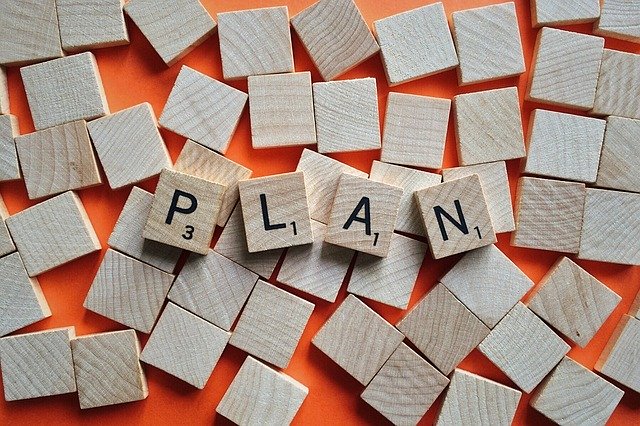Achieve your goals!
Clients come to me looking for counselling for all sorts of reasons. Some come because they keep losing their temper and want help with their anger. Some come to me because they’ve become so anxious that they struggle with social interactions, that many of us take for granted. Some come to me because they’re suffering from depression and find some days that they just want to stay in bed and be left alone. Some come to me simply because they have “lost their way” in life and are looking for help getting their life back on track. In this blog, I’m going to show you how you can turn your life around and achieve your goals.
“If you want to live a happy life, tie it to a goal, not to people or things.”
– Albert Einstein
The one thing that all my clients have in common is that they are all looking to achieve something, even if they don’t know what it is. Now as a counsellor who takes pride in practising ethically, I can’t talk about what my clients and I talk about in counselling sessions but I can talk about what all my clients want and indeed, all of us want – to achieve our goals. Whether we want to find a partner, feel less anxious, get a better job or just enjoy life, we all have goals. The problem is, sometimes our goals are too diffuse – they aren’t clear to us or maybe we just don’t know what our goals are at all.
Maybe we’ve set goals in the past and we haven’t achieved them or maybe we’re just struggling with the goals we have and need some help. So, without further ado, let’s take a look at how we can get to where we want to be in life and achieve our goals!
Goal Setting – what are your goals?
If we’re going to achieve anything in life, we need to establish our goals. We need to know what we want if we are going to achieve it. But knowing what we want is only half the battle. Most people have at least an idea of what they want, it’s achieving our goals that most of us struggle with. If I want to learn to swim but I don’t know where I can find someone to teach me, I need to start to think about how I’m going to do it. If I plan my goal, it’ll keep me focused while I solve the problems that are stopping me.
Lets take a look at a plan to figure out what our goals are and how we are going to achieve them. Grab a blank piece of paper and a pen and lets get started!
1. Set no more than 3 goals to begin with
So it’s time to think about your goals but to begin with, set yourself no more than three goals. If we set anymore than three, there’s a danger that we’ll become overwhelmed. While it’s great to have lots of goals, if we can prioritise three to begin with, it’ll help keep us focused on what’s most important. As we begin to achieve those goals, we can make revisions to our goal plan and this can then include some of the other goals we have.
For example, if we decided that the goals we wanted to achieve was ‘to get into shape’, ‘to socialise more’, to ‘find a hobby we enjoy’, ‘to change jobs’ and ‘to meet the right woman’, then we might find that we try to do all of them but lose focus because we’re trying to change our lives too dramatically and too quickly.
“A goal is not always meant to be reached, it often serves simply as something to aim at.”
– Bruce Lee
If for example, we focused on socialising more, getting into shape and finding a hobby we enjoy, there’s every chance that by socialising more, you’ll meet someone your attracted to. If you’re doing more, socialising more and exercising more, you’ll be more appealing to a potential employer too. Wouldn’t you hire someone who is sociable, looks after themselves and has things in their life they’re passionate about? You’ll also tend to find that as you achieve your most important goals, you’ll be achieving your other goals too.
2. Focus on short term goals
While it’s important to focus on a manageable number of goals, to start off with, it is also important to work on short term goals. So for example, if your goal was to ‘learn a foreign language’, a short term goal might be to ‘enrol on an evening course at a local college’ or ‘buy a teach yourself French audio book’. The useful part of short term goals is that they are easier to achieve and measure.
For example, to enrol on an evening course it is usually a case of applying to the college. It can be done fairly easily. If you are accepted on to the course, you’ve achieved your goal. If you don’t make contact with the college, you won’t achieve your goal.
“If something is important enough, even if the odds are against you, you should still do it.”
– Elon Musk
You can measure success and failure much easier than you can the longer term goal of learning a language. Once you start to get into the habit of achieving goals, you can then vary between the short, medium and long term with more confidence.
3. Keep it positive
It might sound obvious to say but if you’re in a place where you are feeling negative about your life, being positive about achieving your goals may not come naturally. So, rather than setting a goal like ‘stop playing on the Xbox every night‘, it is more useful to set a goal of ‘playing on the Xbox for no more than 2 hours each night’. Another example might be ‘eat less takeaways’. You could alter this to ‘eat a cooked meal three time per week’. Both of those examples can be “shortened” too. You might need to drop to 4 hours on the Xbox each night first or cook a meal once a week before you can get to three or more.
4. Lets be SMART about this
Now that we’ve established our goals, we need a framework to help us realise them. A really useful technique for achieving goals is to us S.M.A.R.T goals; Specific, Measurable, Achievable, Relevant and Time specific.
Specific:
Be as to the point as you can. If for example, you wanted to save up enough money to buy a new car, then it would be useful to write down things like; which car do you want? How much will it cost? How long will it take you to save the money? Adding as much detail here, will help you overcome the obstacles to your goal.
Measurable:
We need to be able to ‘measure’ the progress of your goal. Staying with the car example, if you wanted to save £5000 as a deposit, then we can measure the progress towards the figure by depositing a certain amount each week into a bank account and checking the progress on a monthly basis, when the statement arrives.
Achievable:
Setting a goal like ‘I’d like to become a Hollywood superstar within the next two weeks’ is unrealistic if you have just realised that your goal is indeed, to become a Hollywood star! If your goal isn’t achievable, it isn’t useful to you. If you really wanted to become an actor then a goal which might ‘getting a role in a play’ would probably be more useful.
Time Specific:
You may have already thought about how long it would take you to achieve your goals when we looked at the ‘Specific’ aspect but if you haven’t, it’s useful to set yourself a time limit to achieve your goal. So for example, if your goal was to ‘join a Thai boxing club‘ then you might want to give yourself a week to complete the goal, as you’ll have to find a club, work out if you can afford membership etc. If you don’t make your goal time specific, you may find yourself “putting off” your goal. If you can’t make it time specific, go back to ‘Achievable’ and make an adjustment.
For example, your goal was to ‘learn how to design websites’, you might want to set yourself a longer time frame, if the course began in the September and it was now July. But, you could alter the goal to ‘prepare for the webdesign course beginning in September’ and start working towards your goal, now.
“The people who are crazy enough to think they can change the world are the ones who do.”
– Steve Jobs
While it’s great to achieve a goal, don’t be too disheartened if you don’t. You might be too ambitious when it comes to ‘Time Specific’ or maybe you wasn’t ‘Specific’ enough but if you set a goal and use this framework, you can always re-vise your goals. So for example, if your goal was to ‘learn Spanish in 6 months’ and your on month 12 and you’ve only mastered half a dozen phrases, you just need to re-vise your goal.
Maybe the goal needs to be something like ‘practice spoken Spanish with a friend twice a week’. Also, if you have set yourself a goal that’s not ‘Achievable’, re-vise it but also remember to give yourself credit for what you have achieved. Taking the Spanish example, you’ve still learnt some Spanish. Perhaps you’ve made some friends from the classes too? The SMART framework is to help you focus, not beat yourself with!
Finally, you need to refer to the framework on a regular basis to keep your goals focused and relevant. If you met someone on that Spanish course and started to date, is that other goal of ‘to meet the right woman’ still relevant?
Conclusion
The SMART framework can be a really handy tool if you struggle to achieve your goals. This isn’t something you’ll need to do for the rest of your life, it’ll help you get into the habit of making achievable goals and attaining them. I’ve used it with my clients and it works. Let me know what you think in the comments below. Have you tried it and had success? Have you tried it and failed? Why do you think that could be and what did you try instead?
Thanks for reading.
Kieran.

“You are never too old to set a new goal or to dream a new dream.”
– C.S. LewisIf you’re looking for a counsellor who understands and can put themselves in your shoes and feel how you feel, get in touch.


